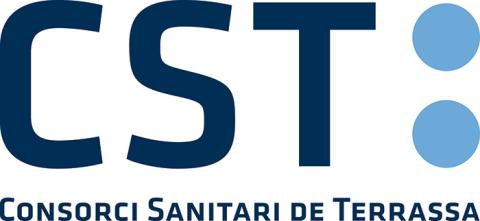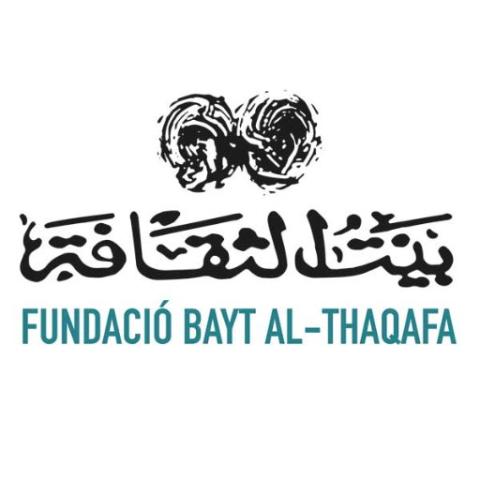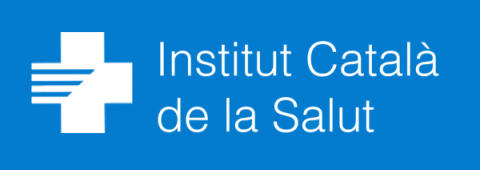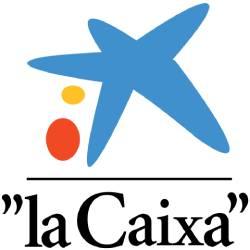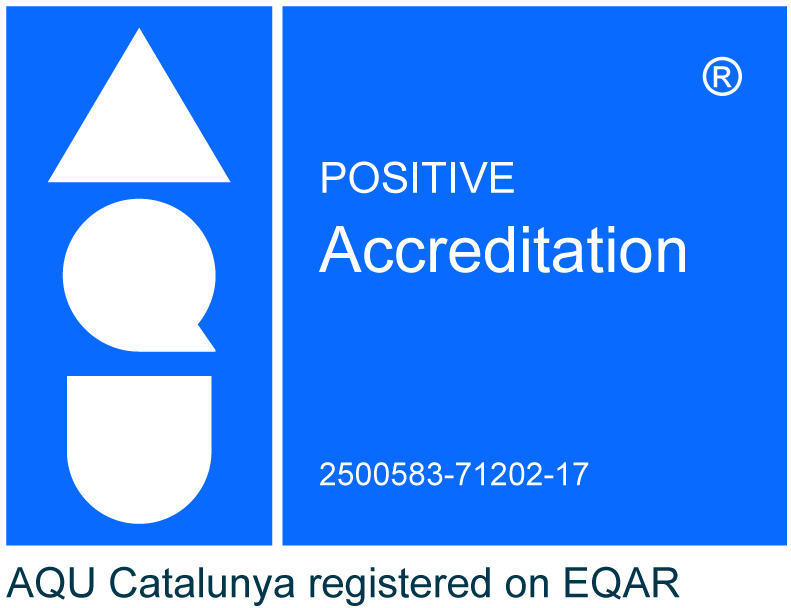Bachelor’s Degree in Dentistry (English Programme)
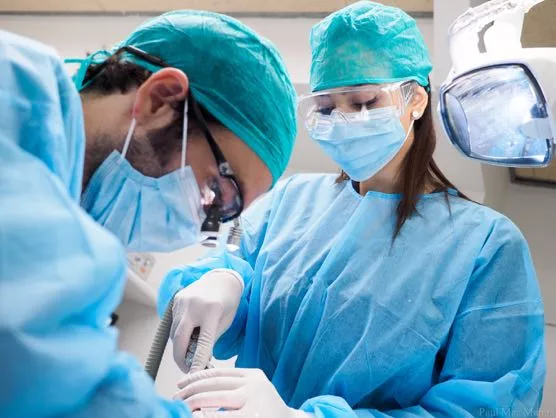
Our faculty combines internationality with technology
Do a work placement in the University Dental Clinic
The pathway towards professional success. Take it.
Positions in rankings
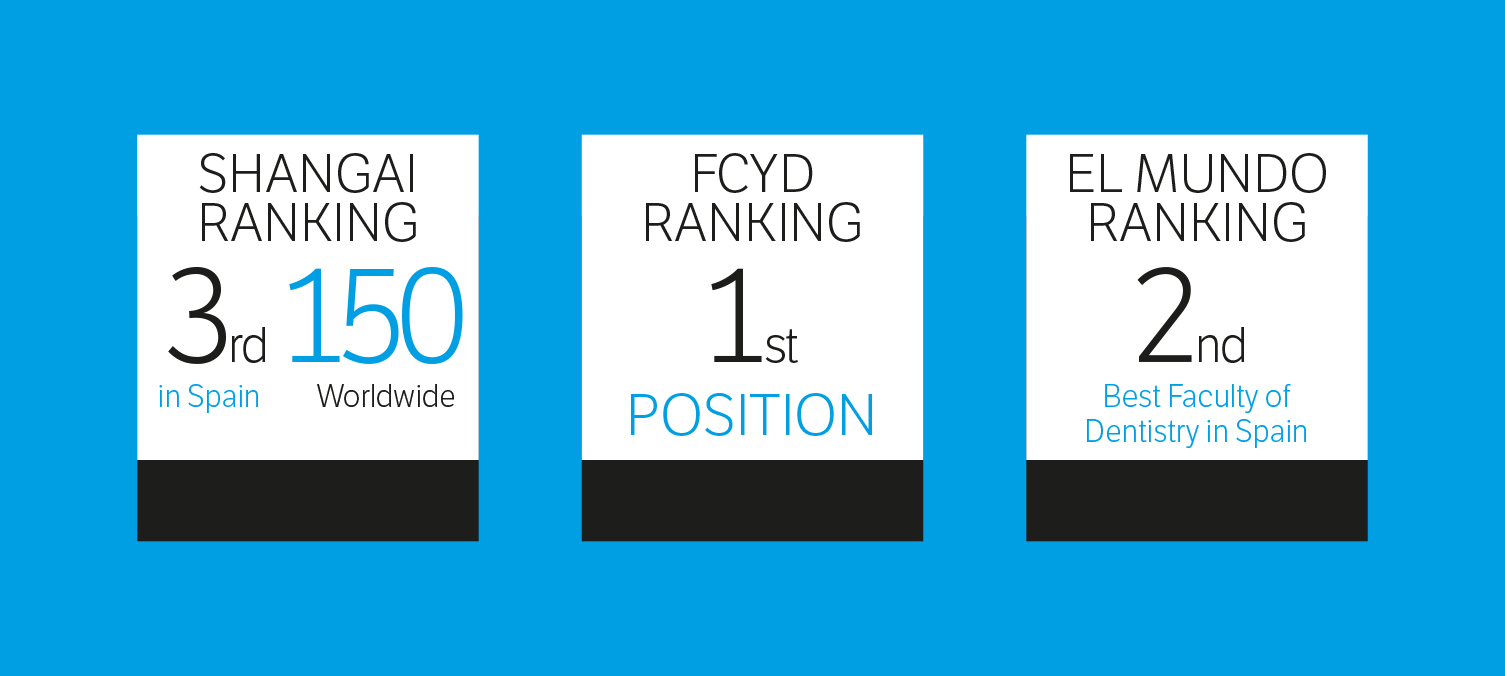
The Faculty of Dentistry sits among the best in national and international rankings
Learn both in the classroom and at our University Dental Clinic (CUO)
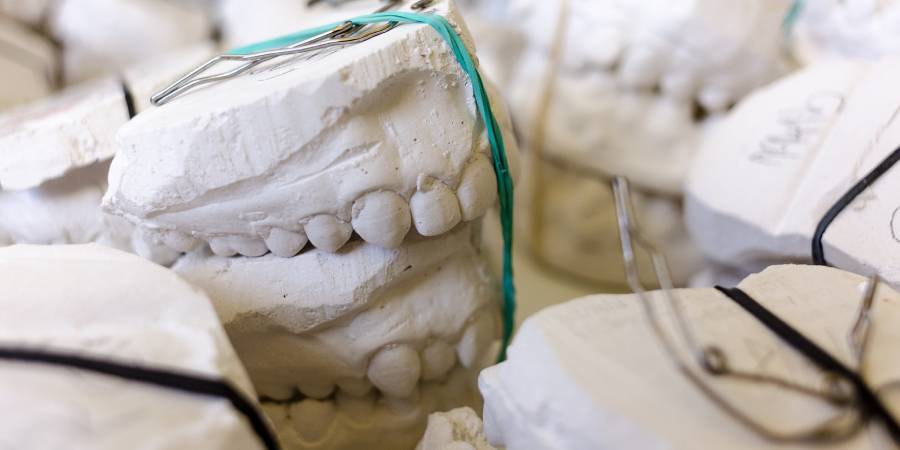
Get the most out of the facilities from day one: over 67,000 patients and new facilities, including 88 booths, one operating theatre, six surgery booths and 95 dental simulators.
Employment
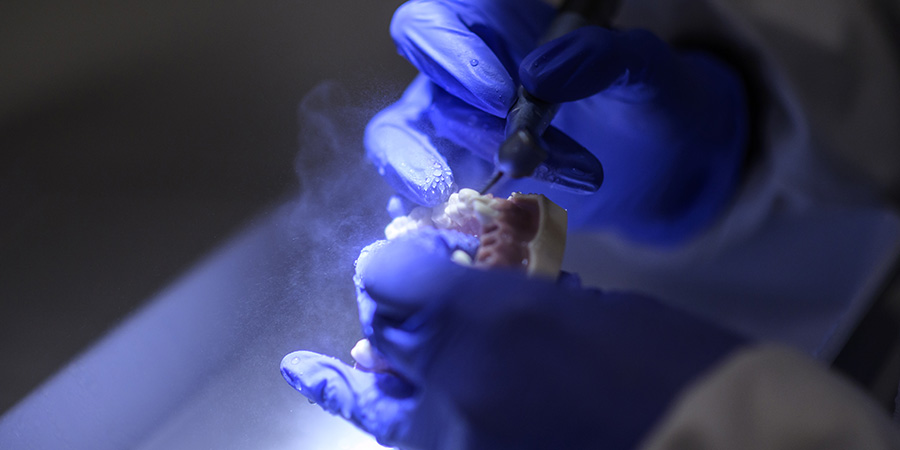
With a Bachelor's Degree in Dentistry from UIC Barcelona you'll have professional opportunities in three main areas: health, teaching and research. In addition, UIC Barcelona offers continuing education upon finishing the degree programme.
From theory to practice
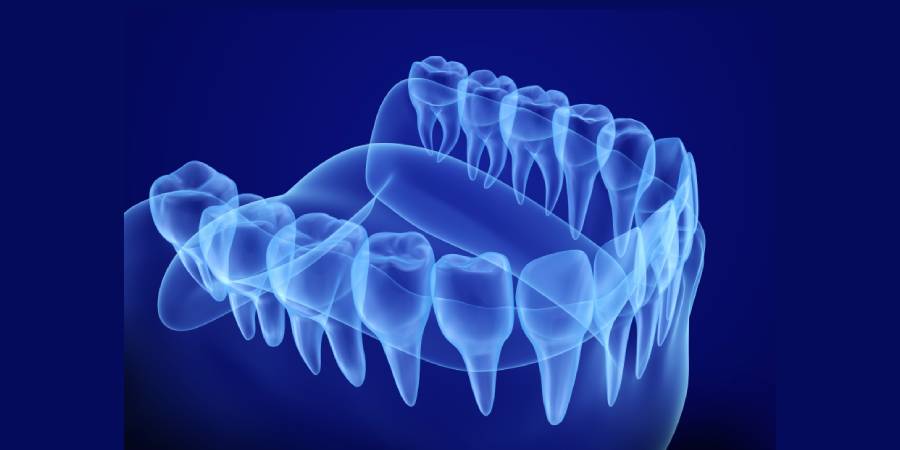
Put all of your learning into practice. Your tutors are recognised professionals with years of experience.
International outlook
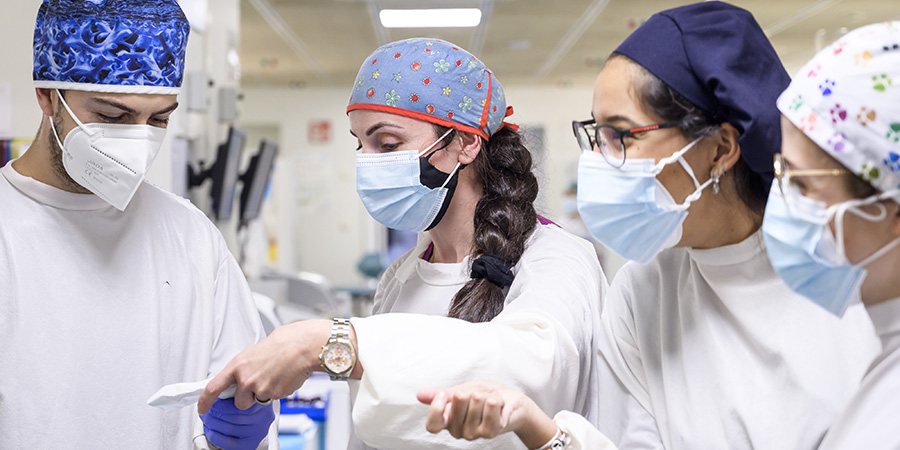
We forge global alliances to promote student mobility and exchange with other universities from around the world.
Find your passion and specialise
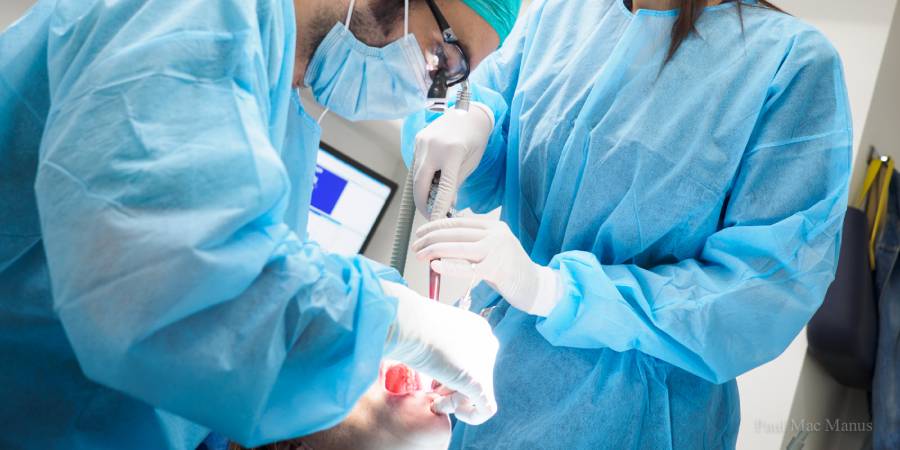
We offer two university master's degrees, eleven UIC Barcelona-specific master’s degrees, five postgraduate degrees, six clinical residencies and more than 40 continuing education programmes.
Prepare yourself for more opportunities
At UIC Barcelona we are aware that dentistry has undergone profound change in recent years. You will remain at the cutting edge in order to work in the following areas:
- Your own dental consultancy
- Dental care as a freelance professional or associate
- Public healthcare network
- Private hospitals that contain dental services
- Consultancy in dental companies
- Research in all fields of dentistry
- Teaching at universities and specialised centres
Students tell you their experience
At UIC Barcelona we are aware that good facilities are crucial when taking a dental degree.
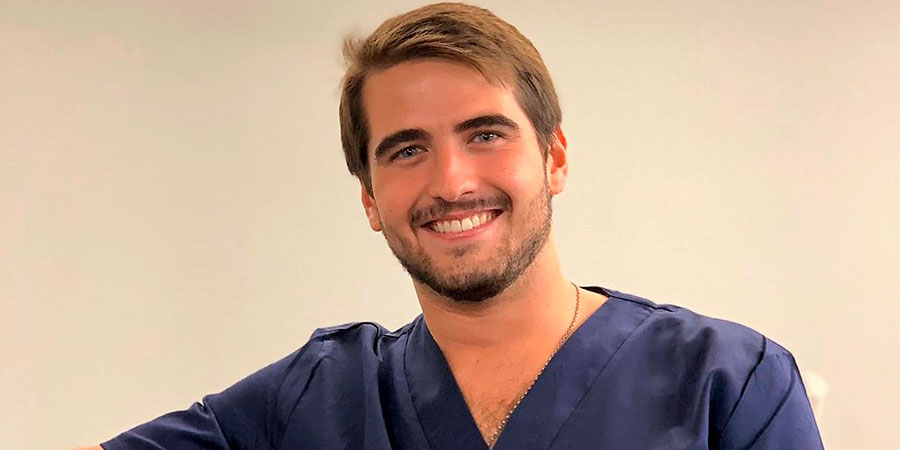
“I think that UIC Barcelona offers a lot of opportunities and a high level of quality in terms of the lecturers and facilities, as well as constantly innovating and reinventing itself. The University provides individual attention to each student and ensures that we think critically and are aware of the current state of the profession by reading contemporary scientific articles. We also learn a lot in the work placements, due to their quality and quantity, both at a preclinical level and also in the University Dental Clinic.”
Nacho Garcia
Bachelor's Degree in Dentistry student
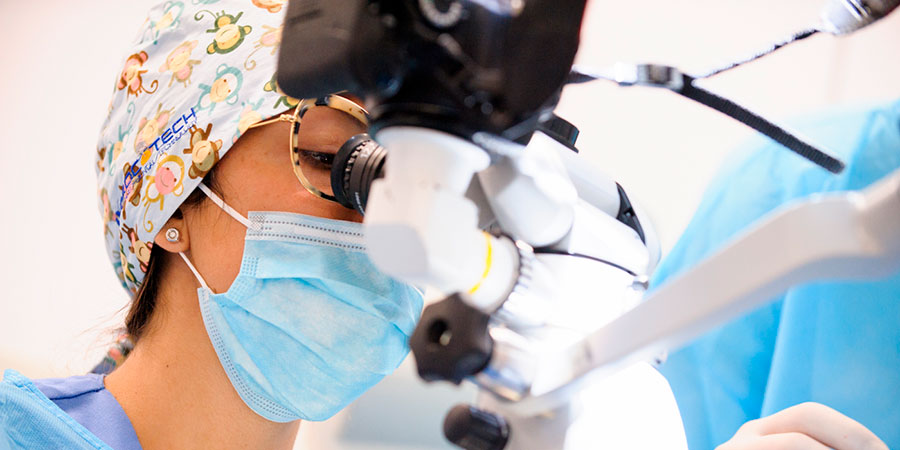
“What I most like about UIC Barcelona is that once you complete your studies you can extend your knowledge at a higher level thanks to the postgraduate degrees on offer. Also the fact that I achieved great personal enrichment over the years both through my classmates and my lecturers.”
Marta Rodríguez Mazón
Bachelor's Degree in Dentistry student
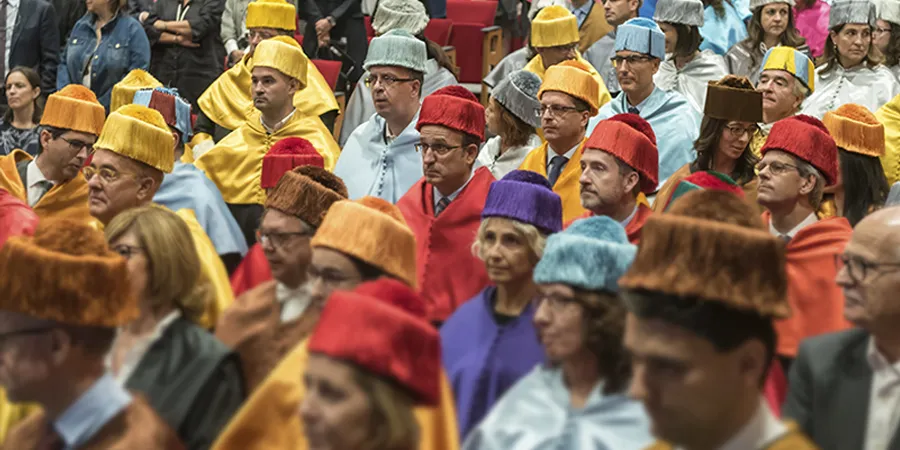
Professors and lecturers active in their fields
The teaching team in the Faculty of Dentistry consists of professors and lecturers who combine their teaching with exercising their profession in specialist centres. They are also involved in important research activities both inside and outside the university. Direct contact with professional practice allows our professors and lecturers to transmit a comprehensive, multidisciplinary and human overview of the reality in the sector to students.
Additional information
Presentation
The Faculty of Dentistry has launched the bachelor's degree in Dentistry English programme. The first two years will be taught exclusively in English, and from the third year onwards, students will join the overall programme. In their third year students will begin to do work experience in the University Dental Clinic, therefore they will need to have learned Spanish during their first two years.
UIC Barcelona Language Service will offer them the appropriate courses to achieve this.
The Degree in Dentistry at UIC Barcelona equips students with thorough scientific knowledge, technical skills and the ability to effectively apply them to the diagnosis, treatment, and recovery of a wide range of dental diseases and ailments.
The programme addresses topics in dental structure and function, biomechanics of the normal and affected dental apparatus, as well as the most innovative techniques and procedures used in the treatment of abnormalities.
The curriculum emphasises skills in the basic sciences, so that students graduate with a solid scientific background and extensive experience confronting practical challenges before receiving their degree. UIC Barcelona's University Dental Clinic is equipped with the modern technology that proper dental treatment now calls for.
Objectives
Our education is target-based. The Bachelor's Degree in Dentistry will provide:
- The ability to appreciate the need for professional development and continuing education.
- The ability to efficiently use advances in knowledge and technology.
- The values necessary for understanding the patient's central role in the therapeutic decision-making process.
Who is it intended for? Prospective students
If you have a calling to serve society in the area of health and science, this could be the right profession for you. We do, however, recommend that prospective students have a background in health sciences.
At UIC Barcelona, we work to enhance the following abilities:
- Discipline, memory and dedication
- Quick decision-making skills
- Psychological skills and empathy
- Emotional balance
- An interest in research
- Responsibility and observation
- Teamwork
- Empathy towards other people's pain
- Resilience
Competences: Graduates
By the time you finish your degree you will have acquired the competences necessary to work as a dentist.
These competences comprise the knowledge, attitudes, behaviour and technical skills you need at graduation to deal with the full range of situations that may surface in everyday practice:
Professionalism
Professional conduct
As a dentist you must have up-to-date knowledge and understand the broad range of issues affecting dentistry. You must be proficient in a wide variety of skills: searching, research, analysis, problem solving, the handling of materials and instruments, planning, communication, coordination and teamwork, and understand how they are relevant to dentistry.
Ethics and case law
As a dentist you must be aware of and understand the moral and ethical responsibilities involved in providing individual and community health care, as well as the current regulations governing dentistry.
Communication and personal skills
As a dentist you must be able to competently establish effective communication with patients, family members and close relatives, as well as with other health professionals involved in patient care.
Basic knowledge, information handling and critical thinking
As a dentist you must have sufficient knowledge and understanding of basic biomedical, general medical, technical and clinical sciences in order to understand the normal and pathological conditions relevant to dentistry. You must also know how to competently apply this information in critical situations.
Compilation of clinical information
As a dentist you must be proficient when it comes to taking and recording a patient's general clinical and oral health record. This will include biological, medical, psychological and social information needed to assess the oral health of patients of all ages. You must be able to perform an appropriate physical examination, interpret the clinical findings and order any additional diagnostic tests that you feel are necessary.
Diagnosis and treatment planning
As a dentist you must be competent when it comes to making decisions, providing rationale and performing clinical trials aimed at developing a provisional or confirmed diagnosis of the disease, including the interpretation of the patient's clinical records and data from clinical examinations, X-rays or any other diagnostic test. You must be able to formulate diagnoses and treatment plans for patients of all ages and conditions.
Achieving and maintaining good oral health
By the time you finish your degree you must be able to:
- Educate patients and provide patients of all ages and conditions comprehensive primary care that emphasises the present notions of oral disease prevention and treatment and stresses the need to maintain both overall and oral health.
- Diagnose and treat the most common diseases and disorders affecting the oral mucosa, jaw bone and salivary gland in patients of all ages and conditions.
- Treat disorders and diseases that require the use of simple surgical techniques on hard and soft tissue in patients of all ages and conditions.
- Treat periodontal disease in patients of all ages and conditions.
- Treat cariogenic and non-cariogenic dental pathology, including pulp and periradicular disease in patients of all ages and conditions.
- Restore and replace teeth, ensuring that they have an acceptable shape, function and appearance, in patients of all ages and conditions.
- Treat, to a limited extent, maloclussions in primary, mixed and permanent dentition in patients of all ages and conditions.
- Use adequate techniques to mitigate and treat orofacial pain and the anxiety associated with dental treatment in patients of all ages and conditions.
- Effectively prevent and treat most emergency medical and dental situations that may be associated with dentistry in patients of all ages and conditions.
- Provide uncomplicated, multidisciplinary, sequential and integrated treatment to patients of all ages and conditions.
Health promotion
By the end of your degree you must be able to achieve the highest level of oral health possible at both individual and community level.
Academic accreditation
Holder of a degree in Dentistry from UIC Barcelona.
Teachers
- ABELLA SANS, Francesc
- ABOUL- HOSN CENTENERO, Samir Carlos
- ABRAHAMIAN, Lory
- AGUILERA PEDROSA, Sonia Josefa
- AGULLES SIMÓ, María Remedios
- ALGUERÓ JORDÀ, Arnau
- ALI HUSSEIN, Akram
- ALTUNA FISTOLERA, Pablo
- ÁLVAREZ FERNÁNDEZ, Luana
- ALVAREZ TORRES, Rebeca
- AMGHAR BAHRIOUI, Yasmina
- AMPATZOGLOU, Aikaterini
- ARANÈS ORTIZ, Ferran
- ARCOS PALOMINO, Ignacio
- ARMAS SERRET, Maria
- ARNABAT ARTÉS, Cristina
- ARNOLD, Gina Grace
- ARREGUI GAMBÚS, María
- ARRIEN BARRENETXEA, Gelsy Amaia
- ARROYO FURLAN, Isabel
- ARTÉS RIBAS, Montserrat
- ATENCIO ARRAGA, Isabel Cristina
- AUGÉ CASTRO, Maria Luisa
- BADRENA MORALES, Mònica
- BAENA MUÑOZ, Miguel
- BALLESTEROS ALONSO, Ferran
- BARRIO GRAU, Sandra
- BARRIO PERALES, Laura
- BARR, Joseph Edward
- BASILIO MONNÉ, Juan
- BELTRAN RUIZ, Juan Ignacio
- BENTOLILA RODRIGUEZ, Olga
- BERTOS QUÍLEZ, Jorge
- BETANCOURT LARA, Manuel Esmelin
- BLASI BERIAIN, Gonzalo
- BLASI BERIAIN, Ignacio
- BONASTRE MAÑES, Joan-Enric
- BOSCH CANALS, Begoña María
- BOSSY LLUCH, Gabriela
- BRIEDE, Karolina Elena
- CABALLÉ SERRANO, Jordi
- CABRATOSA TERMES, Josep
- CALVO MANSILLA CALDERÓN, Carmen María
- CAÑABATE MOLINA, Víctor
- CAÑELLAS DOMINGO, Elba
- CANO BATALLA, Jordi
- CANTÓ NAVÉS, Oriol
- CARBÓ CORTÉS, Ana
- CÁRDENAS RIVERA, Gabriel
- CARREÑO MURIEL, Miguel Angel
- CARRIÓ BERTRÁN, Neus
- CASALS FARRÉ, Núria
- CASAPONSA PAREROLS, Jaume
- CASASAMPERA FERNÁNDEZ, Jordi
- CEDEÑO SALAZAR, Rosario de María
- CELADA PARDO, Beatriz
- CEPERUELO SÁNCHEZ, Maria Dolors
- CHAVEZ GATTY, Mitchel
- CHUMACERO GÁLVEZ, Violeta del Carmen
- CLUSELLAS BARRIONUEVO, Maria Victoria
- COELHO PICCIONELLO, Alejandro
- COLET MASEGOSA, Martí
- CORDERO OTERO, Gaël
- CÓRDOVA MARTÍNEZ, Suzanne
- COROMINAS DELGADO, Cristina
- COSTA KURHZALS, Marcos
- COSTA PALAU, Santiago
- COTS COROMINAS, Ester
- DE JAUREGUIZAR MARQUÉS, Gloria
- DE LA FUENTE, Mario Nicolás
- DE LA IGLESIA BEYME, Fernando
- DE MEDRANO REÑÉ, Javier María
- DE PABLO MARQUEZ, Bernat
- DE QUIXANO BARDAJÍ, Juan
- DE SOLÀ-MORALES SERRA, Oriol
- DE TAPIA PASTOR, Beatriz
- DORIA JAUREGUÍZAR, Guillermo
- DUMONT, Thomas Alexander
- DURÁN-SINDREU TEROL, Fernando Salvador
- ELNAYEF ELSAKAN, Basel
- ENCINAS RODRÍGUEZ, Marc
- ESPAÑA TOST, Antonio Jesús
- ESPONA ROIG, José
- FALAHA SHAAR, Mohamad
- FARRÉ PAGÈS, Maria Núria
- FELIPE SPADA, Natalia
- FENOY ILLACER, María del Pilar
- FERNÁNDEZ FIGUERAS, Maria Teresa
- FERNÁNDEZ VILLAR, Sandra
- FERRÉ MARTÍNEZ, Joan
- FERRÉ MORALES, Albert
- FERRÉS AMAT, Eduard
- FERRÉS AMAT, Elvira
- FIGUERAS ÁLVAREZ, Oscar
- FIORITO VALERIO, María Victoria
- FLORES FRAILE, María Teresa
- FONTANALS PALACIOS, Xavier
- FRAGACHÁN HENRÍQUEZ, Mauro Eduardo
- FRANK, Josh
- GALLART MANCHÓN, Patricia
- GALVE HUERTAS, Andrea
- GÁMEZ CENZANO, Cristina
- GÁMIZ CORRAL, Melanie
- GARCIA BALLESTÉ, Alexandre
- GARCÍA FONT, Marc
- GARCÍA GONZÁLEZ, Susana
- GARCÍA LINARES, Jordi
- GARCÍA MUR, Berta
- GARCÍA-MUSSONS BARROSO, Mónica María
- GARCÍA SÁNCHEZ, Raquel
- GARCIA VILLA, Cristina
- GARGALLO ALBIOL, Jordi
- GAURIN, Hunter Michael
- GIL MANICH, Víctor
- GIMÉNEZ ESBRÍ, Víctor
- GINER TARRIDA, Lluís
- GIORDANO, Ana Bárbara
- GIRALT HERNANDO, Maria
- GOMEZ, Florencia
- GÓMEZ VAL, Gonzalo
- GOMMON, Natalie
- GONZÁLEZ MARRÓN, Adrián
- GONZÁLEZ MARTÍN, Miguel Angel
- GONZÁLEZ SÁNCHEZ, José Antonio
- GRANJA MARTÍNEZ, Carlos
- GRAU MARRERO, Nayra
- GUIDA LORUSSO, Gianfranco
- GUINOT JIMENO, Francisco Antonio
- GUTIÉRREZ RUIZ, Xavier
- HERNANDEZ ALFARO, Federico Jose
- HERRÁEZ TONDO, Maria
- HERRERA CELESTE, Katianna
- HOSPITAL RIBAS, Anna
- IBRAHIM-BACHA KHOUDEIR, Asem Marc
- IGLESIAS MORADIELLOS, Angélica
- IRAZUSTA HERNANDEZ, Sergio
- JANE NOBLOM, Luis
- JANER FERRER, Maria Victòria
- JAREÑO RAMOS, Beatriz
- JIMÉNEZ JIMÉNEZ, Javier
- JIMENEZ SALA, Anna
- JOVER DE ESPAÑA, María
- JUNQUERA MUÑOZ, Marc
- KARPOVA, Anna
- KNIGHT, Janine Gwendolyn
- LANAU SOLÉ, Neus
- LANZ RIVAS, Jose Luis
- LAPEDRA BOSCH, Ada
- LARROSA HENRIQUEZ, Norma
- LLENA DURALL, Cristina
- LLOMBART CALCENA, José Miguel
- LLORET TORRAS, Gina
- LÓPEZ QUINTILLA, Luisa
- LÓPEZ VIVANCOS, Josefa
- LOZANO CARRASCAL, Naroa
- LUCAS TAULÉ, Ernest
- MACHUCA ORTIZ, Teresa Miguelina Jazmin
- MACPHERSON MAYOL, Ignacio
- MAÑES MEDINA, Anna
- MANTECÓN MAINZ, Rita
- MARCÉ CLAVILLÉ, Marta
- MARTÍNEZ AMARGANT, Josep Maria
- MARTÍNEZ-CALCERRADA COLLELL, Jose María
- MARTÍNEZ GÓMEZ, Teresita Patricia
- MARTINEZ MIRALLES, Clàudia
- MARTÍNEZ MIRAVÉ, Araceli
- MARTÍNEZ SABIO, Laura
- MARTÍN SÁNCHEZ, Juan Carlos
- MARTÍ VIGIL, Jordi
- MARTOS ALGARRA, Carla
- MASIÀ GRIDILLA, Jordi
- MATAMOROS MANSO, Basilio
- MAYORAL TRIAS, Maria Angela
- MEDINA GÁLVEZ, Raúl
- MELETIS, Demetra
- MET, Yagmur Elif
- MEZQUITA MAS, Pau
- MIRANDA RIERA, Alberto
- MODOLELL FARRÉ, Ignacio
- MOLINA BERLANGA, Núria
- MONJE CORREA, Alberto
- MORALES BENITO, Isabel
- MORELLÓ CASTRO, Sergio
- MORENO DEL RIO, Ruth
- MOR REINOSO, Carolina
- MOYANO LLEIXÀ, Javier
- MUÑIZ ROCA, Carlos
- MUÑOZ PIQUERAS, Laura
- NART MOLINA, José
- NART MOLINA, María
- NAVASCUÉS SORIA, Bruno
- NOGUERA COROMINAS, Clara
- NORES JUNQUERA, Ana
- NOTÓ FÀBREGAS, Marc
- NUÑEZ MUÑOZ, Giovanni
- O'BRIEN, Adam
- OLIVIERI FERNÁNDEZ, Juan Gonzalo
- OLMO GONZÁLEZ, Belisa
- ORTEGA MARTÍNEZ, Jorge
- ORTIZ PUIGPELAT, Octavi
- PACHECO DORIA, Mauricio
- PADULLÉS GASPAR, Esteban
- PÀMIES JORDANA, Bárbara
- PANIAGUA COTONAT, Blanca
- PAPALEO, Natalia Florencia
- PARDO TENORIO, Armando
- PARELLADA INSA, Ana Maria
- PARELLADA INSA, Héctor
- PAULO RODRÍGUEZ, Berta
- PAULO RODRÍGUEZ, Elia Maria
- PAZ URDANETA, Isabel Carlota
- PEÑATE GONZÁLEZ, Lissethe
- PENELLA BROSSA, Marc
- PEREDA ZEA, Richard Augusto
- PÉREZ GARCÍA, Gumersindo
- PEREZ GARCIA, Silvia
- PIULACHS LOZADA-BENAVENTE, Ignasi
- PONS CALABUIG, Ramón
- PORTA FERRER, Cristina
- PORTUGAL IGLESIAS, Elena
- PRATS ARMENGOL, Jordi
- PRIÓ TORRES, Luis
- PUIGBÓ PONS, Anna
- PUIG CLOTA, Júlia
- PUIGDOLLERS PÉREZ, Andreu
- QUEVEDO POU, Oriol
- QUINTANA CASAS, Pau
- QUINTANA VILA, Alfons
- RAGUCCI, Gian Maria Michele
- RÁMILA CARREÑO, Marta
- RAMÍREZ SEBASTIÀ, Anaïs
- REAL VOLTAS, Francisco
- REDONDO SANTIAGO, Gemma
- REQUENA MARTÍNEZ, Cristina
- RIBEIRO AMARAL, Tiago Alexandre
- RIBERA URIBE, José Manuel
- RICO SUSARREY, Maximino
- ROBAYO SALCEDO, Liza Carolina
- ROCAFORT SÁNCHEZ, Guillermo
- ROCAS DE LOS SANTOS, Carla
- RODEJA VAZQUEZ, Mariona
- RODRÍGUEZ BAUZÁ, Rafel Miquel
- RODRIGUEZ FERNANDEZ, Ines
- RODRÍGUEZ GONZÁLEZ, Andrea
- RODRIGUEZ MILLAN, Gustavo Andres
- ROGER QUERALT, Judith
- ROIG CAYON, Miguel
- ROIG FARGA, Elena
- ROLDÁN CUBERO, Javier
- ROMERO FONTENLOS, Adriana del Valle
- RUALES SUAREZ, Gerardo Antonio
- RUBIO PALAU, Josep
- RUIZ MAGAZ, Vanessa
- RYZHYK, Mariia
- SAEZ MARTÍNEZ, Sandra Asunción
- SALAGARAY GARCÍA, María Teresa
- SALOMÓ COLL, Oscar Cosme
- SALVADÓ I RUIZ, Carla
- SAMAYOA-FARNÉS RAMÍREZ, Cynthia Lorena
- SANAGUSTÍN SÁNCHEZ, Elisa
- SÁNCHEZ ARTUÑEDO, David
- SÁNCHEZ FERNÁNDEZ, Mayka
- SÁNCHEZ SITJES, Lluís
- SANTOS LÓPEZ, Iván
- SANTOS MENDOZA, Xavi
- SATORRES NIETO, Marta
- SAVOINI, Marzia Cristina
- SCALCIONE PELAGATTI, Romina María
- SEGURA MOLLÀ, Marta
- SERRA RENOM, María Teresa
- SIEIRA GIL, Ramón
- SOLER GOMIS, Enric
- SURA, Paramveer Singh
- SZWEJKOWSKI, Andrew Dominic
- TADEO MASA, Francisco José
- TEIXEIRA DE PINHO FAVARO, Marianna
- TOMÀS ALIBERAS, Jordi
- TORRES MORALES, Bernat
- TORRES RODRIGUEZ, Juan Camilo
- TORROELLA SAURA, Gerard
- VALERO SALVO, Andrea
- VALLÉS CREIXELL, Ana Maria
- VALLÉS RODRÍGUEZ, Marta
- VALLÈS VEGAS, Cristina
- VALLS ONTAÑÓN, Adaia
- VASCONCELOS HENRIQUES, Leticia Concepción
- VASYLETS, Olena
- VÁZQUEZ DE SOLA FERNÁNDEZ, María Dolores
- VEGA SÁNCHEZ, Paula
- VEIGA MELHEM, Laura Jimena
- VELA CASASEMPERE, Inmaculada
- VELLA LLORENS, Paola
- VELOSO DURÁN, Ana
- VILARRASA SÁNCHEZ, Javier
- VILLAGRAN PEREGRINA, Ilse Paola
- VIROLÉS SUÑER, Maria Mercè
- VIVAS, Sofia Andreina
- VOLTÀ DURÁN, Eric
- WALTER SOLANA, André
- WRIGHT, Roni Helene Grace
- XIAO, Nan
- YUSTE BIELSA, Silvia
- ZABALZA CERDEIRIÑA, Miguel
- ZANÓN SERER, Juan
Internship
Practices
- Compulsory work placement and educational cooperation agreement between the Faculty of Dentistry and Fundació Privada Pro Persones amb Disminució Psíquica Catalònia.
- Compulsory work placement and educational cooperation agreement between the Faculty of Dentistry and the Institut Català de la Salut.
The basic purpose of these two agreements is the practical training of students in the field of dentistry and the placements will consist of developing the theoretical knowledge acquired at the Faculty of Dentistry in the centres belonging to the Fundació Catalònia and the Institut Català de la Salut.
Objectives (External Work Placement)
At the University Dental Clinic the students carry out external clinical work placements in order to put into practice all their theoretical knowledge and skills in the treatments they provide to patients. At the University Dental Clinic, students are prepared to face the challenges of the profession they will practice in the near future and the realities of the sector, which is continually changing.
During external clinical work placements students must provide the treatments required for each subject, monitored very closely not only by instructors or lecturers, but also by the clinic auxiliary staff and patients.
They are required to simulate medical practice and the real operation of a dental clinic in order to acquire the habits of connecting with the patient, clinical staff and other employees (hygienists, auxiliary staff, dental technicians and suppliers).
The placement in the clinic will allow the student to become accustomed to contact with humans, in addition to other kinds of knowledge. From their clinic placement, students should become accustomed to working with all kinds of patients, both adults and children, become sensitive to their needs and adapt to the way of working with each of them.
- Development of personal qualities: patience, sensitivity, kindness, empathy; all of these will allow students to put themselves in the position of the patient and carry out the most appropriate treatment, always taking into consideration their pathology or need.
- The University Dental Clinic staff perform their care duties and also act as a teaching reference for students, as they provide very practical knowledge for their future working life, such as:
- Managing clinic diary
- Preparing quotations
- Managing patient complaints
- Managing waiting lists (screenings, check-ups, referrals)
- Process of cleaning and sterilising instruments
- Possibility of working with materials from different commercial companies
- Appropriate handling, use and management of equipment, making the most of material resources
- Access to the best and newest dental technology
- Access to modern facilities which are suitable for clinical work and laboratory work
The University Dental Clinic provides students with the possibility of carrying out voluntary work experience during the academic year and during holiday periods, to extend their knowledge and continue the practical path they are following.
Finally, through the agreements signed by the Faculty of Dentistry, the University Dental Clinic has various ongoing scientific studies with patients, authorised in advance by the corresponding Ethics Committee, and the results of which are later published for follow-up by research and teaching staff.
Regulations
Professional opportunities
- Health
- The dental consultation
- Dental care in clinics on another’s behalf or as an associate
- The public health network
- Private hospital centres with dental services
- Teaching
- Universities
- Specialised health centres
- Professional training workshops
- Research
- Dentistry
- Orthodontics
- Implantology
- Cosmetic dentistry
General norms and regulations concerning practical experience
During the period of practical experience, students shall comply with the norms and regulations that govern the operation of the University Dental Clinic:
- They will wear their standard uniform (scrub) for the Endodontics programme, a uniform that will be provided to them at the beginning of the first year. The scrub shall be clean and complete at all times.
- During the time devoted to clinical practice, students will be at the University Dental Clinic premises, independently from the presence or absence of the patient who had an appointment. In the absence of a programmed patient, students may help out their companions, pre-degree students or non-programmed patients, following the indications of the lecturer in charge.
- They will at all times wear work gloves, face masks covering nose and mouth, and protection glasses.
- Before carrying out the treatment, they will get acquainted with the clinical record and the details of the treatment to be conducted.
- They will collect the necessary materials and instruments to carry out the programmed treatment from the storeroom.
- They will notify reception desk of their arrival to the clinic, they will accompany patients from reception when they arrive and back to reception when treatment is finished.
- During the time set to carry out clinical practical work, students shall accept the decisions of the lecturer concerning what patient to attend, what treatment to apply to each patient and how to carry it out. An essential objective of the programme is the development of a specific clinical criterion in each student. Nevertheless, for the correct operation of the clinic – essential for the development of the programme – the criterion of the lecturer in charge shall prevail in the event of a disagreement between student and professor. This will not prevent a later discussion of the specific situation and case during the clinical sessions.
- Before seeing out the patient, the student shall enter in the record the treatment carried out, the necessary considerations, and what treatment needs to be followed. In the event of requiring more visits with the same student or area, more appointments will be programmed in order to facilitate the organisation at reception. If patients need to be referred to another area or returned to the pre-degree clinic, they will be informed about it, also in writing, at reception.
- Never, under any circumstances, may students retain any documents from the clinical record once the treatment session has finished. In the event of requiring access to any piece of information, they will write a duplicate with the authorisation of lecturer in charge.
- When treatment has been completed, the materials and instruments shall be returned in the condition specified for each case.
- In the event of breakdown of an instrument or equipment of the clinic, the person responsible shall be informed of it before the end of the practice.
- When students are unable to attend clinical practice, they will notify it to the lecturer in charge and to the clinic’s reception desk three weeks in advance. Moreover they will have to justify – before if possible, and in any case afterwards – the motives of their non-attendance.
- Generally speaking, they shall comply with any norms set out by the management of the University Dental Clinic throughout the training period.
Failure to comply with the University Dental Clinic’s operating norms may imply the prohibition of access to it and prevent the carrying out the clinical practices, which are essential for the completion of the programme.
Prerequisites & admissions
Entrance Examinations
The admission exams will consist of an online written exam and an online interview.
The online written exam will have 3 sections:
- A basic general knowledge test (covering high school-level biology and contemporary history topics).
- A psychometric test.
- An English tesT (level B2)
*There is an additional knowledge test on the socio-healthcare field exclusively for students from Pathway 4 (Higher Vocational Training).
The interview will also be held online and will last approximately 10 minutes.
The ranking will be calculated as follows:
- 40% -> Test results
- 10% -> Interview results
- 50% -> Academic record provided by the applicant
Seats will be allocated strictly in order of ranking.
All instructions for the test will be provided one week before the exam.
Please note that we do not provide study materials or example tests. The information provided in this site is all the information we can offer.
Required documentation
The documentation required for the admission process varies according to each candidate’s academic background. Click on the following link to see what documents you will need to provide:
Entrance exam results
Reservation and enrolment
In order to reserve a place on the programme, admitted candidates must pay 20% of the first year fee upon receiving their letter of acceptance.
The remaining 80% is due after enrolment.
Acces routes
Programme applicants may come to UIC Barcelona from different academic backgrounds. Click on the following link for detailed information on the route most pertinent to you:
Grants & financial aid
Grants
UIC Barcelona offers various fellowships supported by both public institutes (MEC or AGUAR) as well as private UIC Barcelona funds.
For further information, please check with our admissions department:
Financial aid
Each payment method is adhered to the specific financing conditions of each degree programme.
Please see the attached document for details on these conditions:
Discounts
Those seeking undergraduate degrees at UIC Barcelona may be eligible for different discounts depending on their circumstances..
